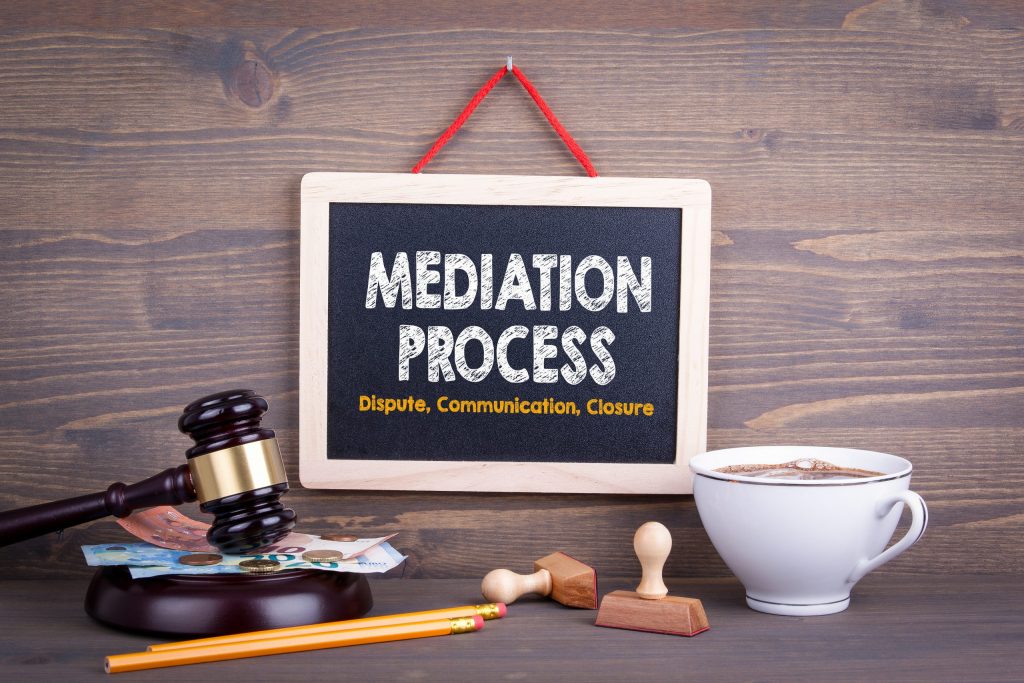Facilitative vs. Evaluative Mediation
In late July, I spoke to the ABA Forum on Construction as part of a panel on how to be a better negotiator in mediation. I asked my fellow panel members, both experienced mediators, to describe their mediation practice in a few sentences. One called herself a facilitative mediator, the other an evaluative mediator. Further discussion though revealed that the objectives and techniques did not differ greatly.
I think most civil case mediators would use the label facilitative to describe their approach but also admit that they are chosen to facilitate the settlement conference because they have experience in the substantive area of law at issue. This leads to the conclusion that the parties or their counsel expect some level of evaluation from the mediator.
Good mediators walk a thin line maintaining neutrality (and equally important, the appearance of neutrality) while also communicating potential weaknesses in the positions taken by a party. We challenge parties based upon the information provided by the opposition but also based upon our own experiences. Any evaluation by the mediator must be careful though not to cross a line where he/she is seen as defending the neutral’s evaluation. In every mediation there is a struggle to forcefully challenge while maintaining neutrality.
A Unified Conceptual Framework
I recently came across an interesting article from Professor John Lande — who co-authored, among other things, Litigation Interest and Risk Assessment, a book high on my recommendations list. In this article titled “We Should Replace Mediation Models with a Unified Conceptual Framework”. Lande succinctly describes the techniques employed in the two models and correctly suggests that there is not a huge gulf between the two.
The article describes facilitative mediation as helping the parties develop, evaluate and communicate proposals by asking questions about the strengths and weaknesses of their cases and about the alternatives to settlement. Facilitators also help the parties explore their underlying interests. In contrast, evaluative mediation involves the mediator assessing the strengths and weaknesses of the parties’ cases, predicting the impact of settling and court outcomes, and proposing settlements. This dichotomy though is based upon false assumptions according to Lande.
Facilitative-evaluative theory is based on false assumptions and generalizations, and the reality often is a lot more complex than portrayed in these models. The theory implies that merely asking questions can’t undermine parties’ decision-making and that mediators’ expression of opinions necessarily does so. In reality, asking questions can create problematic pressure on parties, and providing assessments can help parties make well-considered decisions.
As suggested by the divergent labels my co-panelists used to describe similar approaches, Lande suggests that the questions posed by facilitators can suggest an evaluation and a more explicit evaluation does not foreclose self-evaluation. In reality, mediators use a combination of techniques from both theoretical models regardless of how they label themselves. This is certainly consistent with my practice as a commercial and construction neutral.
I consider myself a facilitator and as such, it is part of the job to question the parties’ interpretation of the law, underlying factual support, and potential gaps between the opposing positions and underlying interests. As Lande points out, the questioning may suggest an evaluation but it is critically important for a neutral to both remain neutral and to maintain the perception of neutrality; challenge positions without being perceived as an advocate.
Mediation models can teach mediators what they are trying to accomplish and training can teach the techniques employed by each but only experience can teach when to push, when to pull, when to question or offer opinion, or when to gently nudge. One of mediation’s greatest assets is the employment of a true neutral to help the parties break through the inability to listen and hear the other side. If the neutral is perceived as defending his/her evaluation, that advantage is lost.

